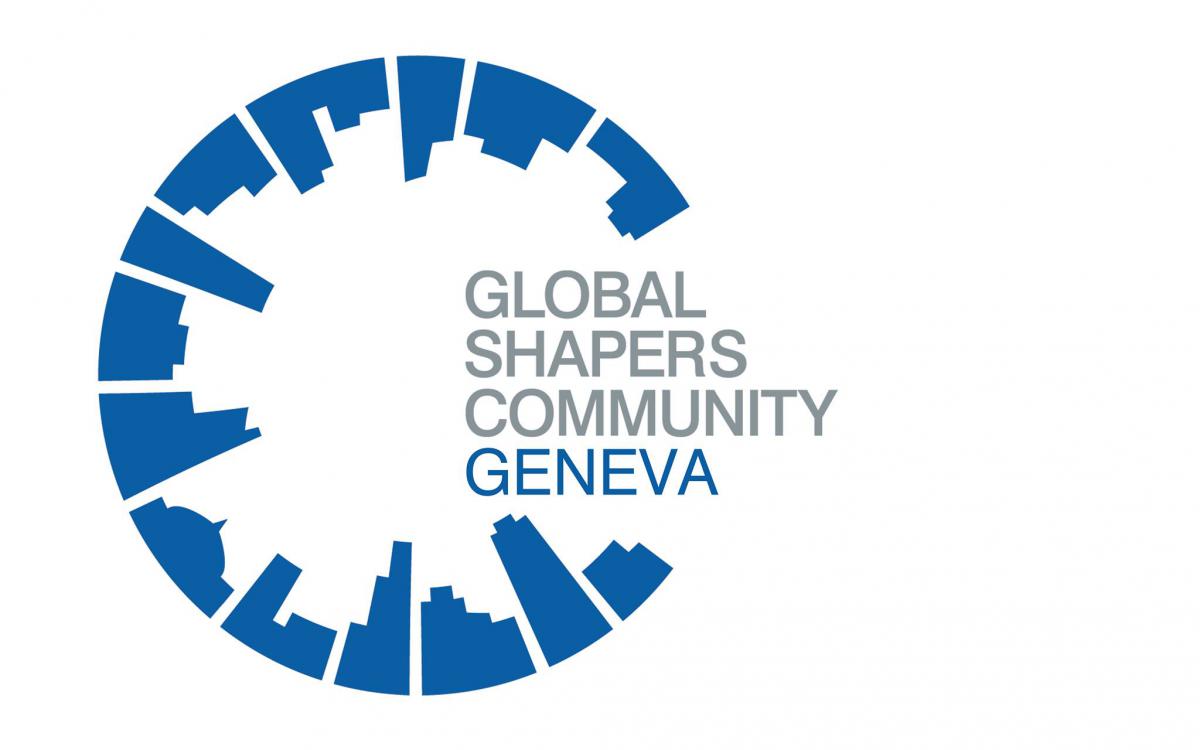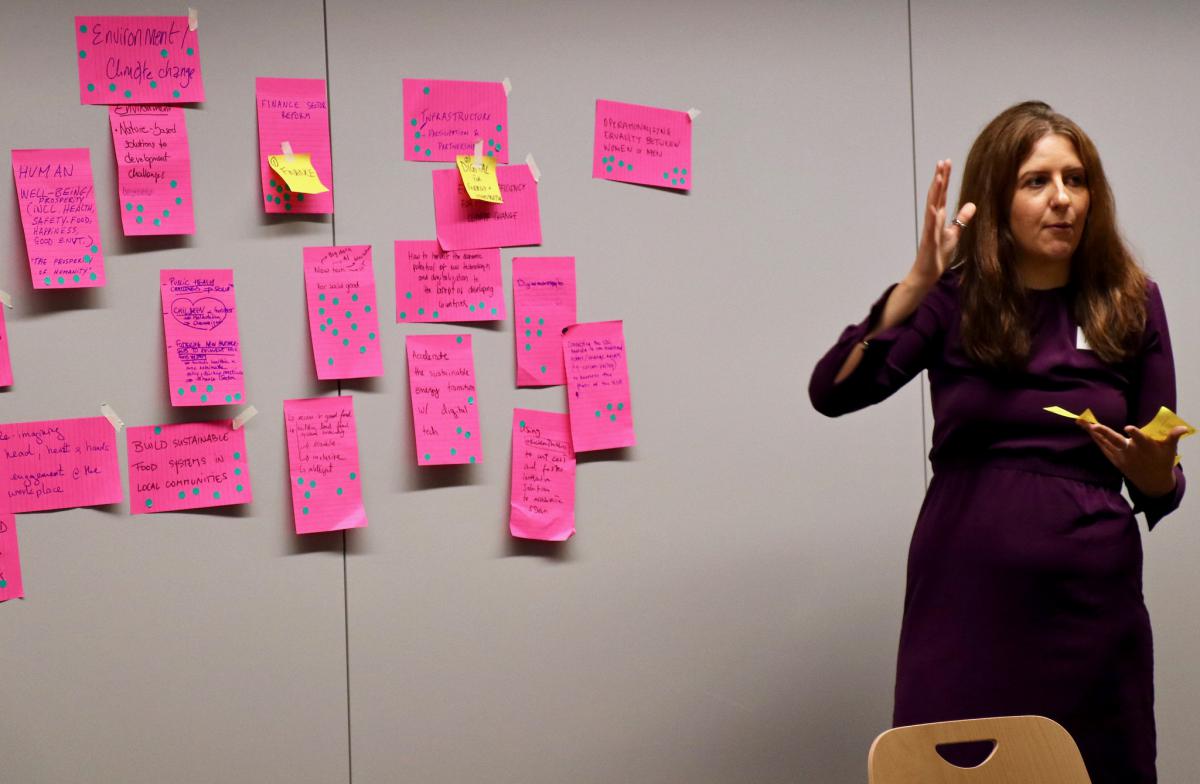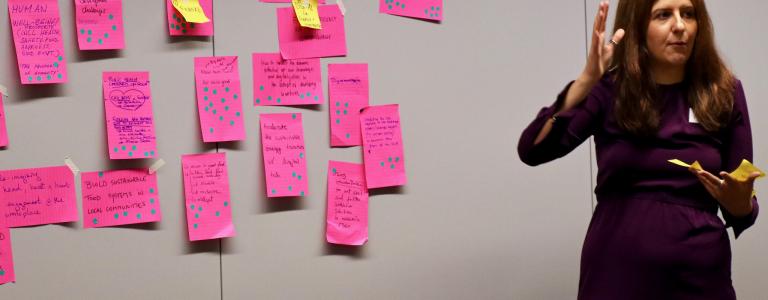Developing Future Leaders: Meet Kali Taylor, a Global Shaper
We check in with Kali Taylor, who has just been named a "Global Shaper," to learn more about the Global Shapers program and what she hopes it will bring for her, both personally and professionally.
Kali Taylor, the lead on the Geneva 2030 Ecosystem initiative under IISD's Sustainable Development Goals (SDG) Knowledge Program, was recently named a "Global Shaper."
This program is led by young leaders between 20 and 30 years old who want to develop their leadership potential toward serving society.
Through her work, Kali promotes collaboration and initiatives for Geneva-based actors focused on SDG implementation. IISD has partnered closely with the UN Office at Geneva SDG Lab to fulfill this vision and, as such, Kali is seconded part-time to the UN, representing non-governmental organizations' (NGOs') viewpoints and providing expertise on systems change and innovation best practice.
We checked in with Kali to hear more about Global Shapers and what she hopes it will bring for her, both personally and professionally.
Tell us about Global Shapers. What is it all about?
The Global Shapers Community is a network of young people driving dialogue, action and change. Born out of the World Economic Forum, the Community is a network of inspiring young people under the age of 30 working together to address local, regional and global challenges. With more than 6,000 members, the Global Shapers Community spans 378 city-based hubs in 160 countries.

What work will you be involved in through this?
The Global Shapers aim to make a difference in their communities. In Geneva, our Hub has three initiatives: one focuses on refurbishing electronics and donating them to local organizations who need them; one makes financial literacy simple for young people; and one promotes investment in childcare facilities by large companies to enable female leadership and career development.
"The Shapers community is incredibly diverse – comprised of people working on everything from traditional finance to artificial intelligence to humanitarian response."
I will be working on the "Child care for Careers" project. In Switzerland, only 15 per cent of mothers work full-time, and this is largely attributable to very high child care costs. We have developed all the material needed to fully understand the benefits of investing in childcare for employee retention and satisfaction and now are working with large companies to encourage implementation of a crèche (nursery facility) at their workplace. You can learn more about the Geneva Hub projects here.
What do you hope to gain from it, personally and professionally?
I have been in Geneva for 18 months now, working with IISD. It is my hope that through the Shapers I can give back to this city that is my new home. In addition, I look forward to expanding my network of interesting young change-makers and making new friends!

What do you hope your involvement in Global Shapers will bring to IISD?
The work I do at IISD allows me to meet and partner with so many people/organizations working on the Sustainable Development Goals here in Geneva, but it is somewhat confined to the traditional development actors. The Shapers community is incredibly diverse – comprised of people working on everything from traditional finance to artificial intelligence to humanitarian response. It is an incredible opportunity to expand my perspective and bring new ideas into sustainable development challenges.
You might also be interested in
Fisheries Subsidies and Sustainability: What's at stake for Senegal?
In this interview, Senegalese expert Mamadou Diallo discusses the risk of overfishing and its impact on coastal communities, highlighting the importance of Senegal ratifying and implementing the World Trade Organization (WTO) Agreement on Fisheries Subsidies.
Fisheries Subsidies and the WTO: How far have we come?
Tristan Irschlinger offers a comprehensive overview explaining key aspects of the World Trade Organization (WTO) Agreement on Fisheries Subsidies, ongoing discussions, and what’s at stake for the sustainability of global fisheries.
WTO Members: Don't abandon the race—finish negotiations on fisheries subsidies
Anna Holl Buhl and Megan Jungwiwattanaporn explain why broader rules are needed to phase out subsidies that incentivize overfishing, harm marine life, and threaten the communities that depend on them.
Government Support to Fisheries: Why should we care?
The Organisation for Economic Co-operation and Development's (OECD) Claire Delpeuch, Will Symes, and James Innes explain why, when implemented, public support policies should be environmentally sustainable, economically viable, and socially inclusive, and share insights on how that objective can be met.
